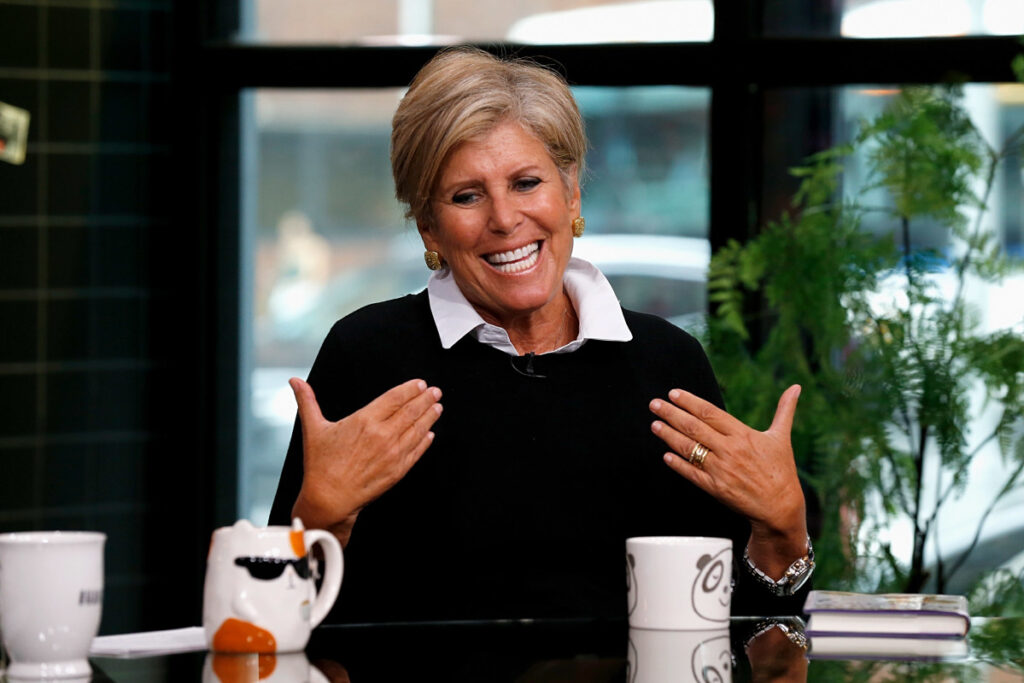Anyone who is even contemplating retirement has considered the optimal time to start receiving Social Security benefits. That’s because for most Americans, the Social Security benefit is a significant source of income in retirement—for 40% of Americans, it’s the sole source of income during their retirement years.
Retirees can start receiving benefits as early as 62, although the “full retirement age” for Americans born in 1960 or later is 67.
💰💸 Don’t miss the move: SIGN UP for TheStreet’s FREE Daily newsletter 💰💸
But personal finance expert and best-selling author Suze Orman says most people should delay even longer—until they are 70.
Suze Orman thinks 70 is the new 65
Seventy is the new retirement age, or at least it should be, Orman believes. And she thinks too few people consider waiting until 70 to claim their Social Security benefits.
“I was concerned when I recently read that just 10% of people are committed to waiting until age 70 to start claiming their Social Security benefit,” she wrote (some sources say it’s closer to 25%, but it’s still a minority).
Ideally, you also have a 401(k) plan, a pension, or other retirement savings plan that will contribute to your anticipated monthly income during retirement, but even with a solid retirement portfolio, Orman advises waiting for those Social Security benefits.
Related: Suze Orman delivers blunt advice on delaying Social Security benefits
Orman points out that when you wait to claim Social Security, you are promised a bigger payout — a much bigger payout, in fact.
That is not just her opinion; the Social Security Quick Calculator backs her up.
Let’s say your salary has been 64,000 a year (the average American salary in 2024), and you will turn 62 on June 15, 2025. You will be eligible to start accepting Social Security benefits in 2025 and bring home $1,345.00 each month.
However, if you wait to start collecting until your 70th birthday, even if you’re not working thanks to other retirement income or only working part-time, and then start claiming your Social Security benefits, you’ll bring home $2,597.00 every month.
Why 70 is the ideal age to start receiving Social Security benefits
Suze Orman’s opinion that the new retirement age should be 70 has solid scientific backing.
According to the Stanford Center on Longevity, most Americans would benefit from a later retirement age.
After examining 292 retirement income strategies, the research team found that delaying Social Security payments until age 70 is a key component of the best strategy for most people, known as the “spend safely in retirement” strategy.
“Social Security is close to the perfect retirement income generator,” the Stanford team says.
Related: Suze Orman has blunt words on your 401(k), Roth IRA in retirement
The Stanford researchers and Orman agree that it makes sense for workers to maximize the value of their Social Security benefits by delaying the start of benefits for the primary or higher wage earner.
Despite advice to the contrary, almost 60 percent of U.S. workers elect to begin Social Security retirement benefits at age 62, according to the Financial Planning Association (FPA).
And approximately 75% of all workers start receiving Social Security retirement benefits before reaching the current full retirement age of 67.
Only about 25% of all U.S. workers wait until full retirement age or later to begin receiving benefits, according to the FPA.
One of the most common reasons people start getting their benefits as early as possible, according to Orman, is that they fear if they wait until 70, they might not live long enough to make waiting worthwhile.
She admits this is possible, but data suggests that anyone near retirement age and in good health will likely live long.
Consider: if you’re a 65-year-old woman and don’t smoke, there is a 50% chance you will still be alive for your 88th birthday. If you’re a non-smoking man and are healthy at 65, you can expect to live until 85. By waiting until 70 to collect your Social Security benefit, you will collect more over the long haul than you would if you started collecting earlier.
It’s a calculated risk no matter what, but Orman believes we should all plan for the best-case scenario: a long life with a comfortable monthly income.
Related: The 10 best investing books (according to stock market pros)
..
